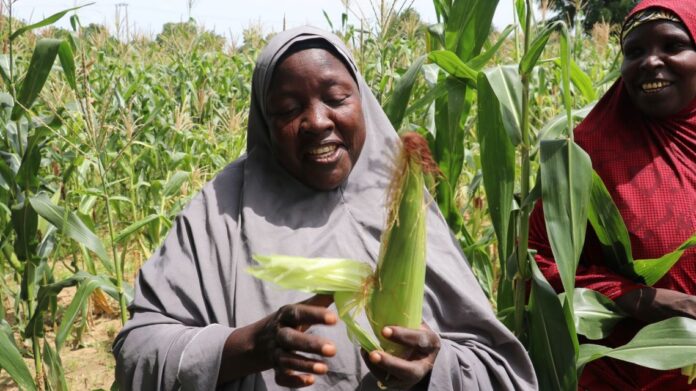By Anthony Areh
The Economic Commission for Africa (ECA) says it will continue to support its Member States in their efforts to improve women’s access to capital, technology and digital financing.
Edlam Abera Yemeru, the Chief of Urbanisation Section of the Gender, Poverty and Social Policy Division at the ECA, gave the assurance.
She was speaking at the ongoing 39th ECA Committee of Experts of the Conference of African Ministers of Finance, Planning and Economic Development, holding in Addis Ababa.
Yemeru, in a presentation on the Committee on Social Policy, Poverty Reduction and Gender, said women entrepreneurs continued to face greater barriers to accessing financing for their small and medium-sized businesses than their male counterparts.
She said this resulted in them failing to grow, adding her division will continue to work towards the economic empowerment of women on the continent.
Yemeru said concerted efforts were needed from governments, international actors, and the financial industry to devise and sustain more gender-focused policies for the continent to register progress in women’s empowerment.
The side event was held on the theme: ‘Accelerating Africa’s progress towards the eradication of extreme poverty and the reduction of inequalities.’
Also, in a statement by the Communication Session of ECA, the committee of experts agreed much needed to be done faster to ensure more people on the continent do not fall into deep poverty.
They called for the inclusion of the continents’ most vulnerable in social development policies in order to achieve true social development.
Yemeru, however, said the ECA will also work across divisions to strengthen data on women empowerment.
She called for follow-up support to Member States that conduct time-use surveys to develop strategic responses on the workload of women in unpaid caregiving.
Yemeru stressed the need for planned and job rich urbanisation as more people continued to move to the cities across Africa.
“Social sector financing; managing rapid urban growth; seeking digital solutions; investing in data evidence, were some of the recommendations for countries on the continent,” she said.
Yemeru called on Member States to align their economic plans with financing and planning for sustainable urbanisation and to better link urban and rural development and strengthen the interdependence between the two.
She called on the ECA to give more technical assistance to its Member States, especially in the area of gender legislation.
The aim of the third session of the Committee on Social Policy, Poverty and Gender was to review and provide strategic orientation to the work of the Division.
This is in addition to sharing with member States the Division’s new areas of focus and policy interventions in delivering on its mandate to eradicate extreme poverty and reduce inequality for inclusive and equitable growth.
The theme of this year’s Conference of African Ministers of Finance, Planning and Economic Development is ‘Sustainable Industrialisation and Diversification of Africa in the Digital Era in the Context of COVID-19.’




